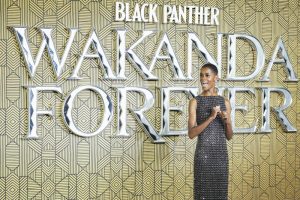
On Nov. 11, Marvel’s “Black Panther: Wakanda Forever” will be in theaters nationwide. The sequel’s release after a four-year delay, due to the COVID-19 pandemic and the death of lead actor Chadwick Boseman, has fans’ emotions high everywhere, including on the Ole Miss campus.
The film’s plot, according to the IMDB website, is “The people of Wakanda fight to protect their home from intervening world powers as they mourn the death of King T’Challa.”
Many members of the iconic cast are returning members, including Angela Bassett, Lupita Nyong’o, Daniel Kaluuya and many more. Mexican actor Tenoch Huera joins the cast to portray the main antagonist, Namor.
Fans of the movie franchise, as well as the comics, have expressed their enthusiasm for casting an indigenous Mexican person in a blockbuster.
Alex Cabello, who is the treasurer of the Latin American Student Organization and of Mexican descent, talks about his excitement for the casting and what it means for Latinx representation.
“We are kind of represented in the Hollywood industry, but it’s usually stereotypical representation,” Cabello said. “I am definitely excited for (Huera) to be a part of (this film). A lot of us are shadowed and pushed aside, so it gives insight into the culture.”
Following the San Diego Comic-Con panel for the movie in July, TikTok creators Charles Bryant (@canthonybryant) and @auntiewiggz.official introduced the idea for all Black people to wear white with accents of purple and gold on opening night. White is supposed to honor the ancestors. As a way to include non-Black people of color, they suggested white with accents colors that correspond with their culture.
Some Black student leaders on campus addressed the importance of representation in the franchise.
Black Student Union Secretary Sydni Davis talked about Black people being able to see themselves in roles that aren’t one-dimensional. She also said the movies are a great medium representing the diversity of the continent of Africa and its many countries.
Deshauna Lee, co-president of the Honors College Minority Engagement Council, reminisced about her first time watching the original movie and the connection she felt with other Black peers from her school.
“I went to a predominantly white high school, and there were 20 Black people in the entire school,” Lee said. “We all got together, we all wore our natural hair, and we all wore black. We got pizza and went as a group, and that was powerful because some of those people I hadn’t ever spoken to.”
Lee believes the return of “Black Panther” will “create pathways for Black people to play heroes all the time and not only civil rights activists, slaves or somebody that is impoverished.”
“‘Black Panther,’ to me, means showing great Black leaders and great Black faces and all the various things that they can do. There are strong Black female leaders. There are warriors. There are intellectuals. There are politicians. I think ‘Black Panther’ broadcasts that very well,” Lee said.













